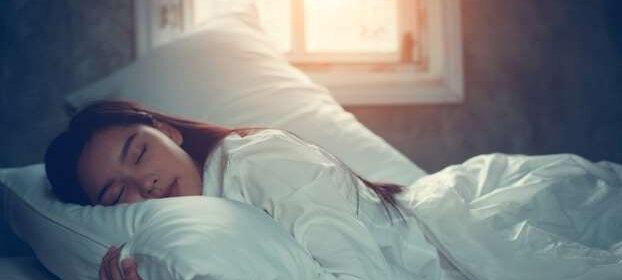Sleep
by ryan heeney / february 7th, 2024
If nutrition is the most important factor in health, sleep is a very close second.
Sleep is a massively undervalued factor in how people feel, think, and just their overall health. A lack of sleep has very real physical effects on the human body, besides the mental ones that come along, as well. While we still don't know everything about sleep, we do know that the body craves it.
Below Dr. Matthew Walker goes into detail about the lengths the body will go to get sleep, specifically dream sleep, when it's not getting it.
Sleep also has a powerful effect on the metabolism and the body's hormones. Sleep deprivation causes a sharp decrease in the good, youthful hormones (progesterone, testosterone, etc) and causes a sharp increase in stress hormones, particularly cortisol, and adrenaline. If you've ever woken up very groggy and tired because of a lack of sleep, and "snapped out of it" within a short period of time, it is these stress hormones "propping you up" and keeping you alert. These stress hormones are the body's safety nets to protect you in the short term, but long term, the chronic continual use of these hormones that keep you functioning in the face of stress, eventually leads to premature aging and disease. A much further, in-depth analysis can be found here.
Sleep deprivation also increases the risk of hypertension, diabetes, behavioral disruption, obesity, depression, heart attack, and stroke. This is most likely due to hormonal disruption and increased levels of inflammation throughout the body. The effect of sleep deprivation on the immune system can also be immediate and quite substantial. Coach Vanessa Bennington does a great job of breaking this effect down here.
The effects of sleep deprivation in society are also great. Dr. Walker goes into this issue below. If you have the time I would highly recommend watching both of Dr. Walker's videos that have been posted, they're very informative.
So what can you do?
In addition to avoiding drugs, caffeine, and alcohol long before bed, Dr. William Dement, one of the foremost and respected sleep researchers in the world, outlines what he believes to be the best sleep hygiene in his book "The Promise of Sleep".
1. Ideally you should be waking up without an alarm.
"Well, that's not possible. I can't just sleep in, I will be late to work."
Well, to avoid sleeping in you absolutely will need your alarm for some time, but the goal here is to get to the point where you don't require it any longer. This is done by moving your bedtime back 15 minutes every night until you are consistently sleeping all the way through and waking up before your alarm goes off. Keeping it on as an insurance policy is probably a good idea, but waking up before it goes off is the goal.
Dr. Dement theorizes that the body has an "internal sleep bank" and that your body keeps track of its sleep debt (how much sleep it's missing out on). From studies, they know your body keeps track of your sleep debt from the last 21 days, but possibly further. The only reason they came to 21 days or beyond is that that's as far as the study went. It is most likely even longer. For this reason, you will notice that you will be sleeping for what seems to be too long. What is happening though, is your body is repaying its sleep debt. Night by night it is putting a little more back into the bank. Soon this will normalize and once you have paid off your body's sleep debt, your time spent sleeping will be much more normalized.
Dr. Dement does not believe in the concept of "oversleeping". If you sleep past a typical length of time (say 10 hours or more) your body is in the process of repaying your sleep debt. Again, with time this will normalize.
2. You should be getting up at the same time every day.
The actual time you wake up is not the critical point (although if you are not getting up in the morning, light therapy will be necessary to get your circadian rhythm in a regular pattern) but the consistent waking time here is crucial. Waking up at the same time even on the weekends will preserve good sleep quality throughout the week and in general.
3. The longer you avoid all screens before bed, the better.
TV screens, your phone, iPad, etc., emit blue light. This frequency of light mimics a low dose of daylight and disrupts the production of the sleep hormone melatonin, and throws off the body's circadian rhythm. Luckily though, there are actually apps that block this blue light or reduce it during nighttime, so you can enjoy late-night screen time and block the harmful effects of blue light at night. F.lux is a popular program that I use for my laptop.
There is an attitude in Western culture that it is somehow a badge of honor to only require little sleep, but it's detrimental to health. Getting up early in the day is terrific for getting a jump start on things if that's what you prefer or are required to do, but this requires an early bedtime as well. Early to bed, early to rise. Those that burn the candle at both ends will end up having to pay the piper eventually.

